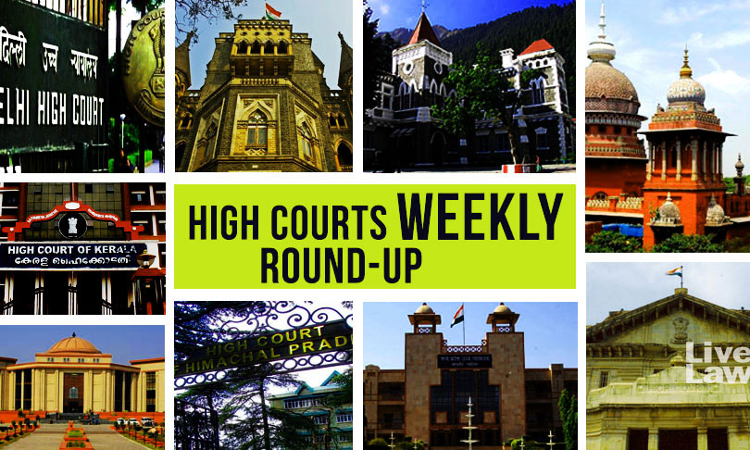- Home
- /
- News Updates
- /
- High Courts Weekly Roundup
High Courts Weekly Roundup
Akshita Saxena
14 Sept 2020 9:13 AM IST
Week Commencing From September 7, 2020 To September 13, 2020 Allahabad High Court 1. Allahabad HC Stays Demolition Of Azam Khans Resort Allegedly Built On Government Land [Dr. Tazeen Fatima v. State of UP & Ors.] In a plea filed by Ms. Tanzeen Fatima, wife of MP Azam Khan, the Allahabad HC stayed the orders of demolition of their 'Humsafar Resort', in UP district...
Tags
Next Story



